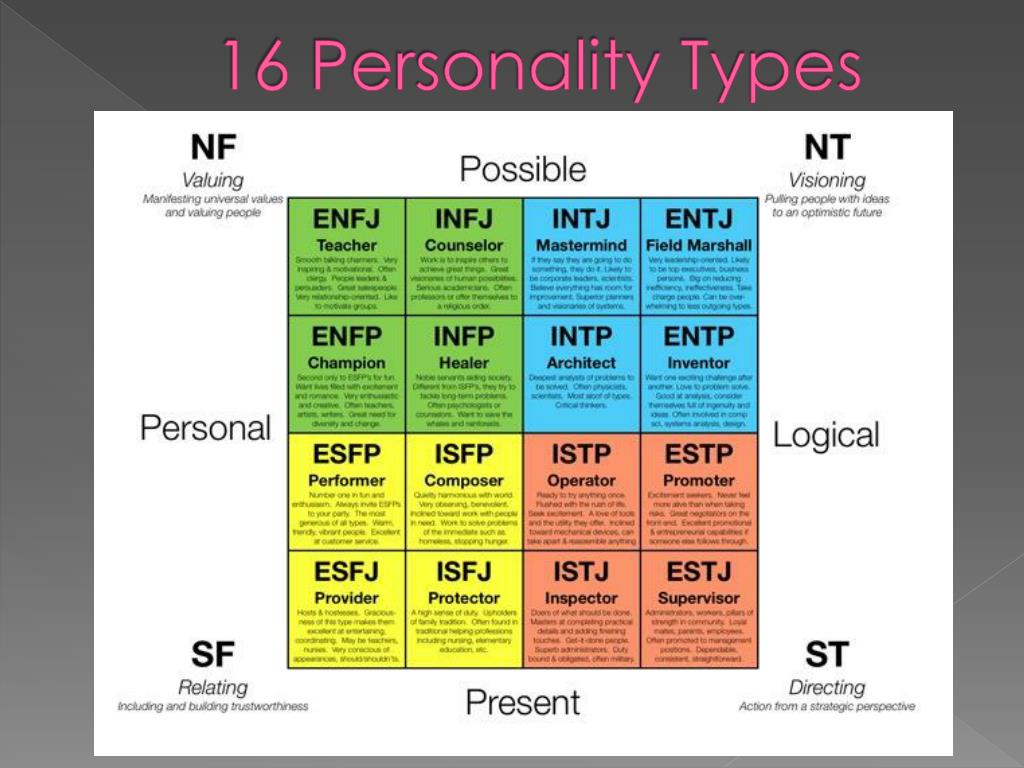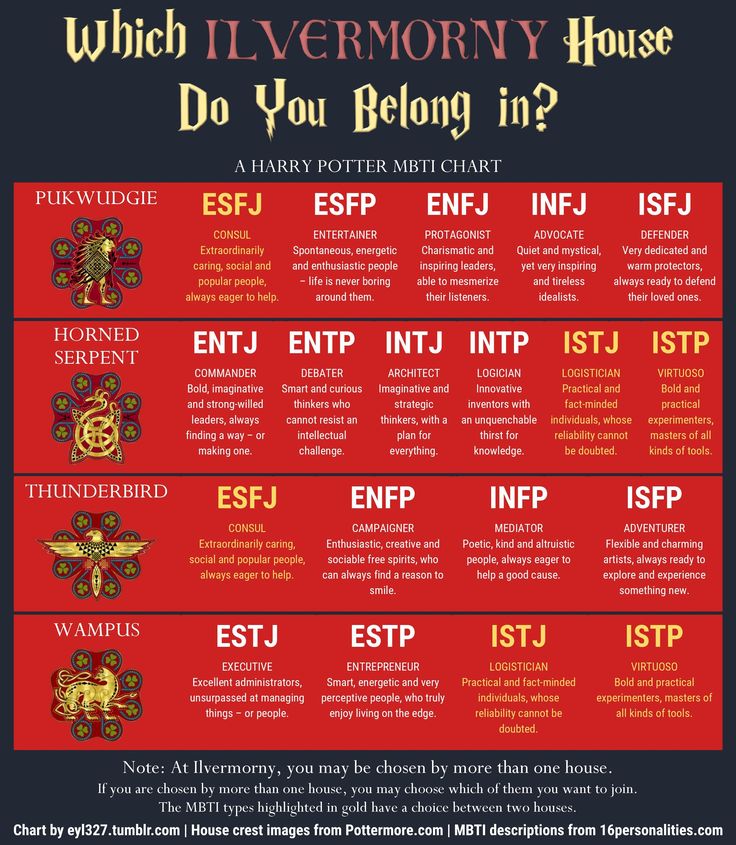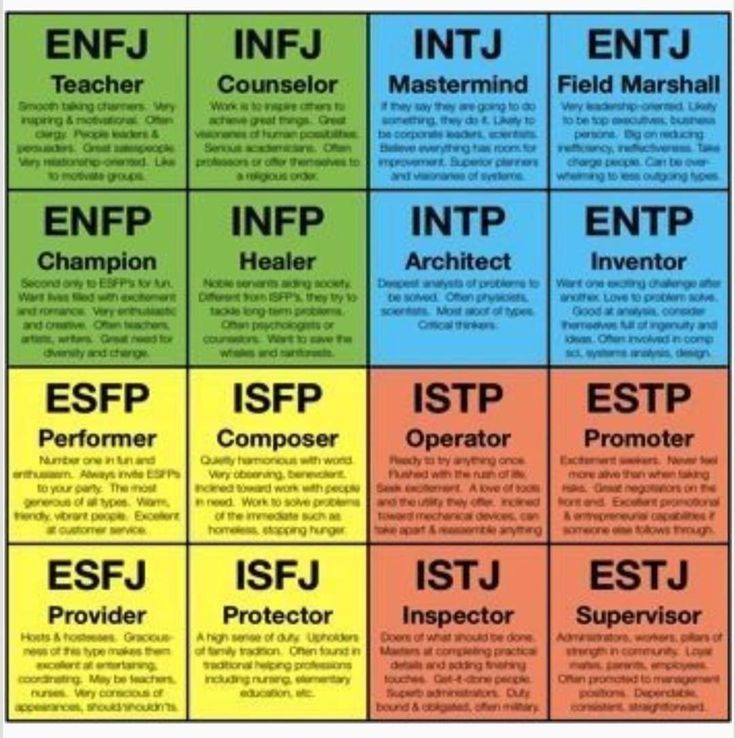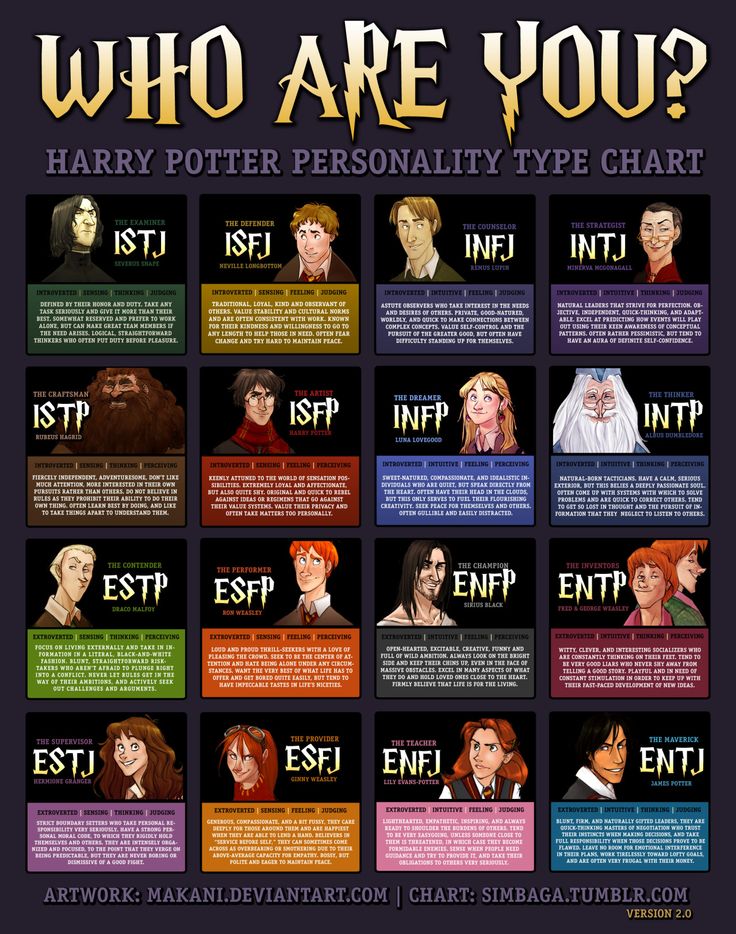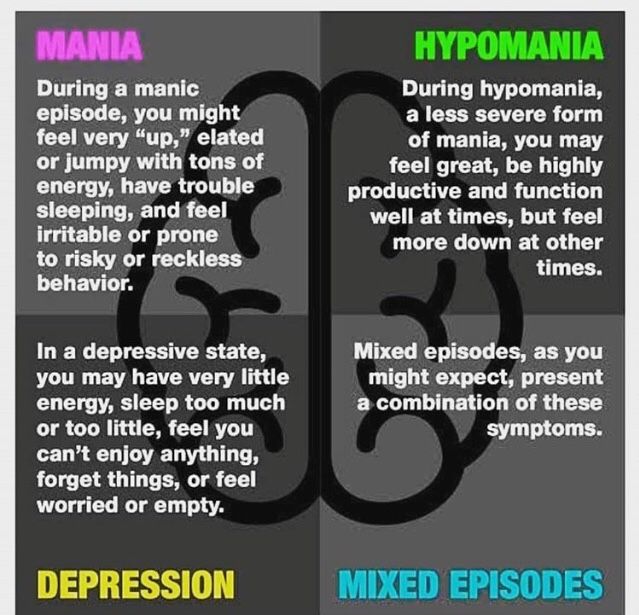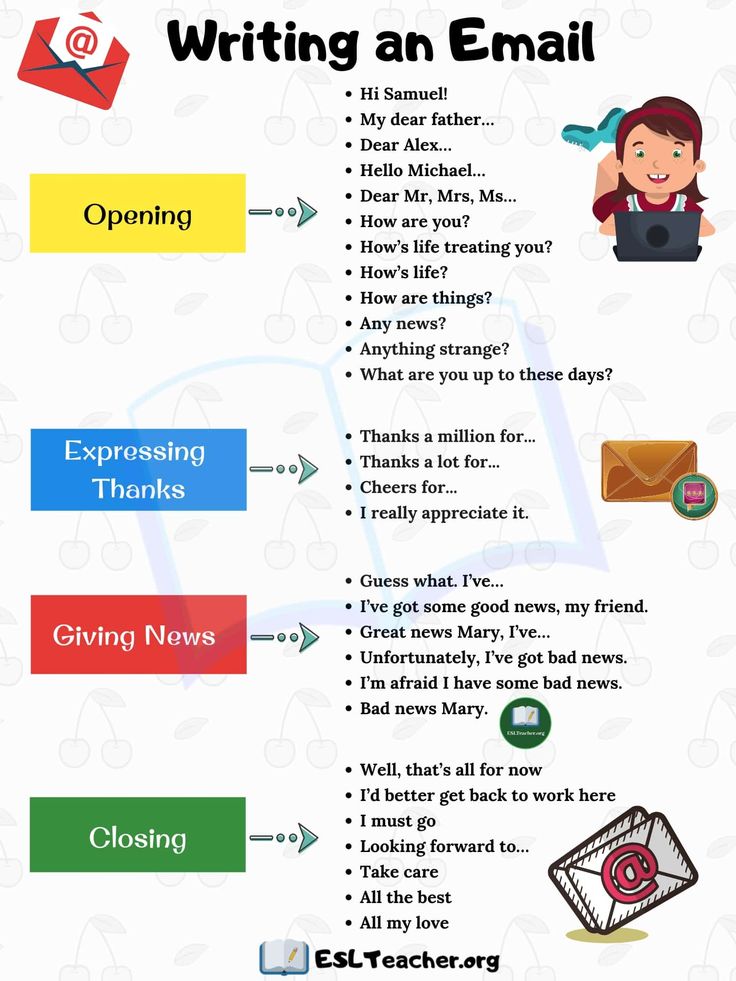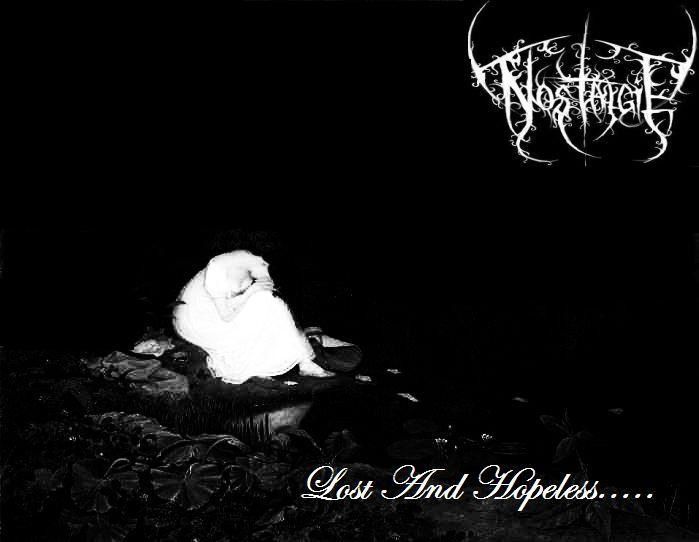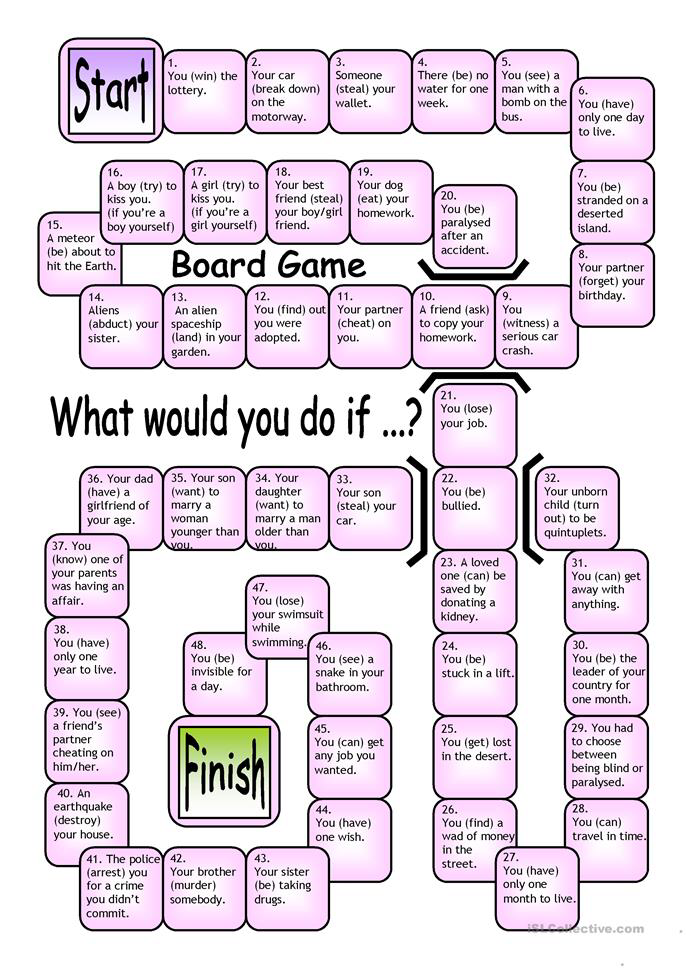Profiles of the 16 personality types
Myers & Briggs' 16 Personality Types
Explore our in-depth descriptions of each of the 16 personality types to learn more about yourself and your loved ones. Or, if you're not sure which personality type fits you, take our free personality test.
The 16 personality types were created by Isabel Myers and Katharine Briggs, developers of the MBTI® assessment. Myers and Briggs created their personality typology to help people discover their own strengths and gain a better understanding of how people are different.
When you discover your own personality type, you'll understand more clearly why you do the things you do. You will gain confidence in your strengths and be better able to make decisions that suit your true nature.
Find Your Type
INFP
The Healer
INFPs are imaginative idealists, guided by their own core values and beliefs. To a Healer, possibilities are paramount; the reality of the moment is only of passing concern. They see potential for a better future, and pursue truth and meaning with their own flair.
INTJ
The Mastermind
INTJs are analytical problem-solvers, eager to improve systems and processes with their innovative ideas. They have a talent for seeing possibilities for improvement, whether at work, at home, or in themselves.
INFJ
The Counselor
INFJs are creative nurturers with a strong sense of personal integrity and a drive to help others realize their potential. Creative and dedicated, they have a talent for helping others with original solutions to their personal challenges.
INTP
The Architect
INTPs are philosophical innovators, fascinated by logical analysis, systems, and design. They are preoccupied with theory, and search for the universal law behind everything they see. They want to understand the unifying themes of life, in all their complexity.
ENFP
The Champion
ENFPs are people-centered creators with a focus on possibilities and a contagious enthusiasm for new ideas, people and activities.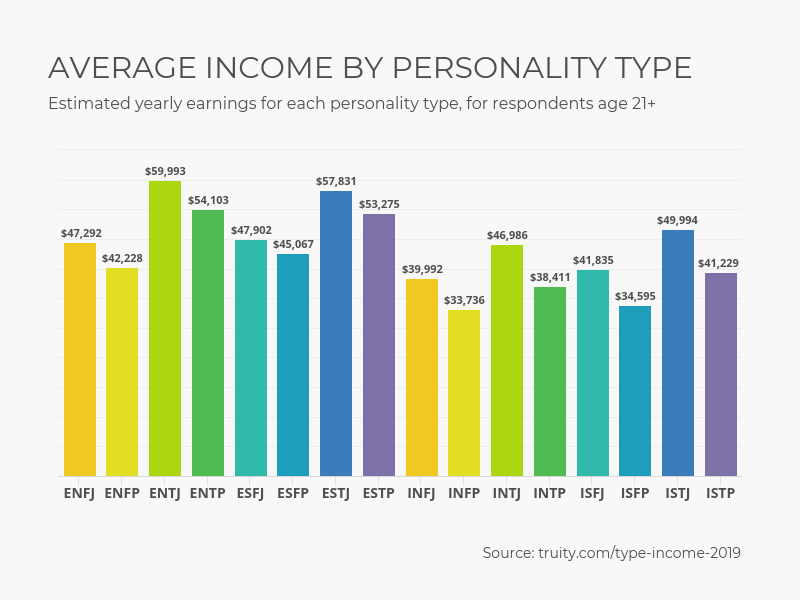 Energetic, warm, and passionate, ENFPs love to help other people explore their creative potential.
Energetic, warm, and passionate, ENFPs love to help other people explore their creative potential.
ENTJ
The Commander
ENTJs are strategic leaders, motivated to organize change. They are quick to see inefficiency and conceptualize new solutions, and enjoy developing long-range plans to accomplish their vision. They excel at logical reasoning and are usually articulate and quick-witted.
ENTP
The Visionary
ENTPs are inspired innovators, motivated to find new solutions to intellectually challenging problems. They are curious and clever, and seek to comprehend the people, systems, and principles that surround them.
ENFJ
The Teacher
ENFJs are idealist organizers, driven to implement their vision of what is best for humanity. They often act as catalysts for human growth because of their ability to see potential in other people and their charisma in persuading others to their ideas.
ISFJ
The Protector
ISFJs are industrious caretakers, loyal to traditions and organizations.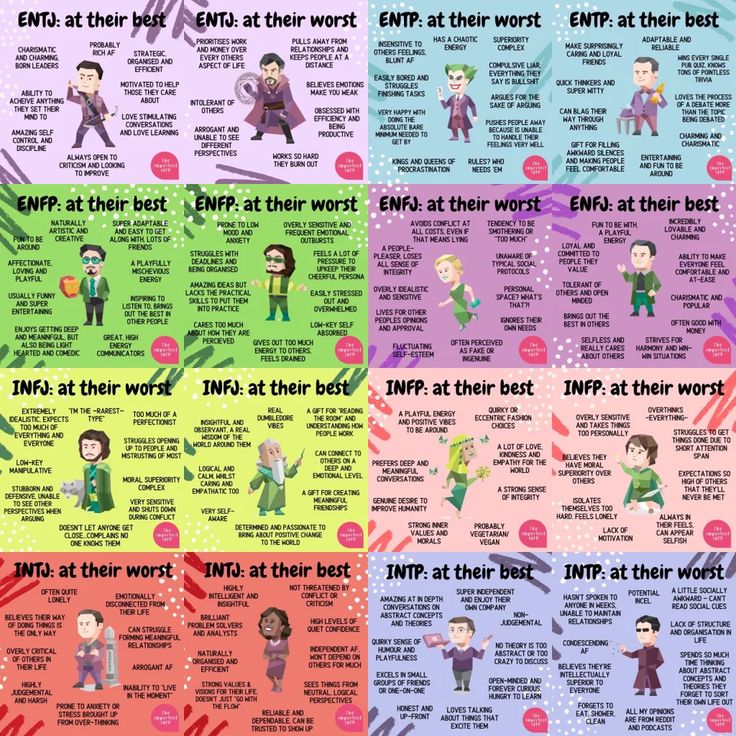 They are practical, compassionate, and caring, and are motivated to provide for others and protect them from the perils of life.
They are practical, compassionate, and caring, and are motivated to provide for others and protect them from the perils of life.
ISFP
The Composer
ISFPs are gentle caretakers who live in the present moment and enjoy their surroundings with cheerful, low-key enthusiasm. They are flexible and spontaneous, and like to go with the flow to enjoy what life has to offer.
ISTJ
The Inspector
ISTJs are responsible organizers, driven to create and enforce order within systems and institutions. They are neat and orderly, inside and out, and tend to have a procedure for everything they do.
ISTP
The Craftsperson
ISTPs are observant artisans with an understanding of mechanics and an interest in troubleshooting. They approach their environments with a flexible logic, looking for practical solutions to the problems at hand.
ESFJ
The Provider
ESFJs are conscientious helpers, sensitive to the needs of others and energetically dedicated to their responsibilities.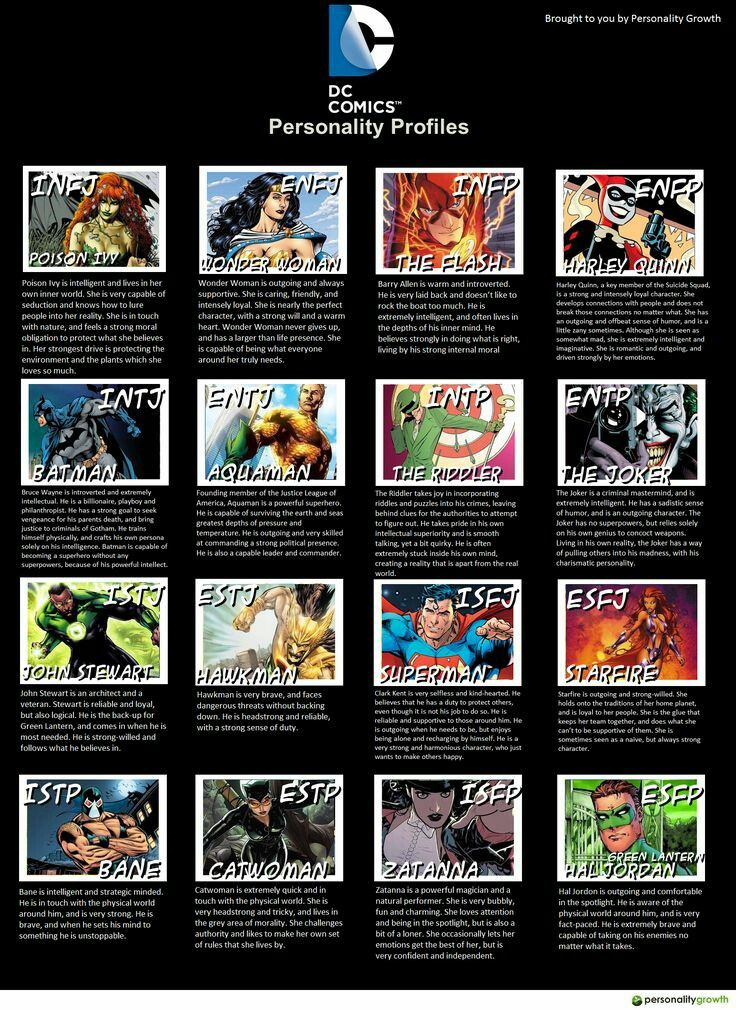 They are highly attuned to their emotional environment and attentive to both the feelings of others and the perception others have of them.
They are highly attuned to their emotional environment and attentive to both the feelings of others and the perception others have of them.
ESFP
The Performer
ESFPs are vivacious entertainers who charm and engage those around them. They are spontaneous, energetic, and fun-loving, and take pleasure in the things around them: food, clothes, nature, animals, and especially people.
ESTJ
The Supervisor
ESTJs are hardworking traditionalists, eager to take charge in organizing projects and people. Orderly, rule-abiding, and conscientious, ESTJs like to get things done, and tend to go about projects in a systematic, methodical way.
ESTP
The Dynamo
ESTPs are energetic thrillseekers who are at their best when putting out fires, whether literal or metaphorical. They bring a sense of dynamic energy to their interactions with others and the world around them.
Personality typing is a system of categorizing people according to their tendencies to think and act in particular ways.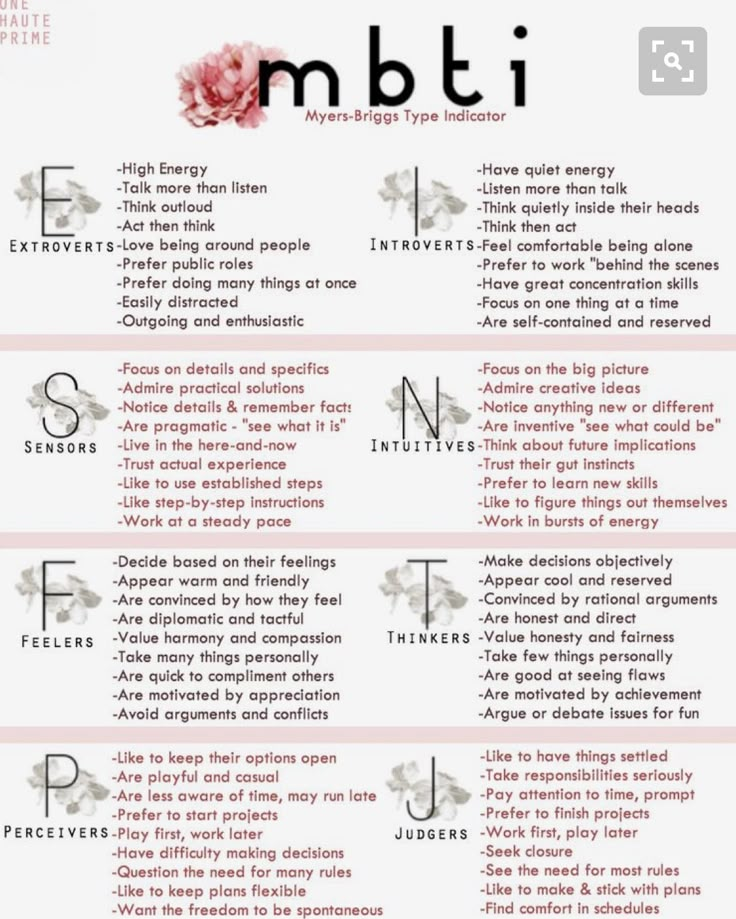 Personality typing attempts to find the broadest, most important ways in which people are different, and make sense of these differences by sorting people into meaningful groups.
Personality typing attempts to find the broadest, most important ways in which people are different, and make sense of these differences by sorting people into meaningful groups.
What is personality typing?
The personality types described here were created by Isabel Briggs Myers and her mother, Katharine Briggs, in the 1960's. Their theories were based on the work of psychologist Carl Jung, although they extended his ideas to create a more complete framework of personality typing. Myers and Briggs proposed that there were four key dimensions that could be used to categorize people:
- Introversion vs. Extraversion
- Sensing vs. Intuition
- Thinking vs. Feeling
- Judging vs. Perceiving
Each of the four dimensions was described as a dichotomy, or an either/or choice between two styles of being. Myers and Briggs described this as a "preference" and proposed that any individual should be able to identify a preferred style on each of the four dimensions.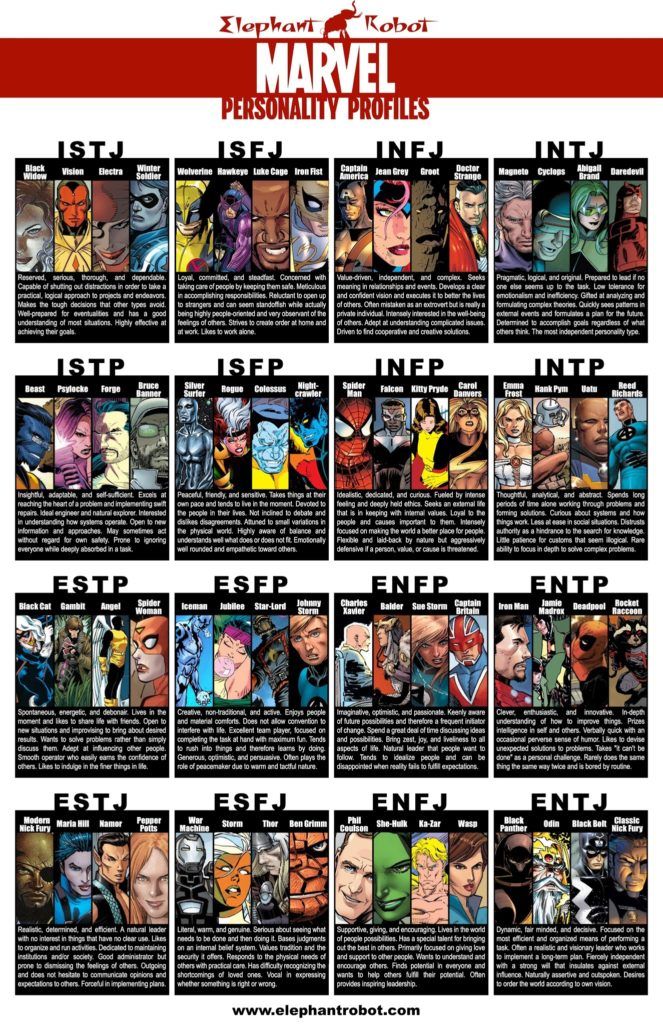 The sum of a person's four preferred styles becomes their personality type.
The sum of a person's four preferred styles becomes their personality type.
Myers and Briggs theorized that our preferences on each of the four dimensions would combine to create predictable patterns in thought and behavior, so that people with the same four preferences would share many commonalities in the way they approach their lives, from the hobbies they choose to the work that might suit them.
What is the meaning of the four letters in a personality type?
Each of the four letters in a personality type code stands for a preference in your style of thinking or behaving.
I/E: Introversion or Extraversion
The Introversion/Extraversion dimension describes how a person manages their energy.
Introverts are energized by spending quiet time alone or with a small group. They tend to be more reserved and thoughtful.
Extraverts are energized by spending time with people and in busy, active surroundings. They tend to be more expressive and outspoken.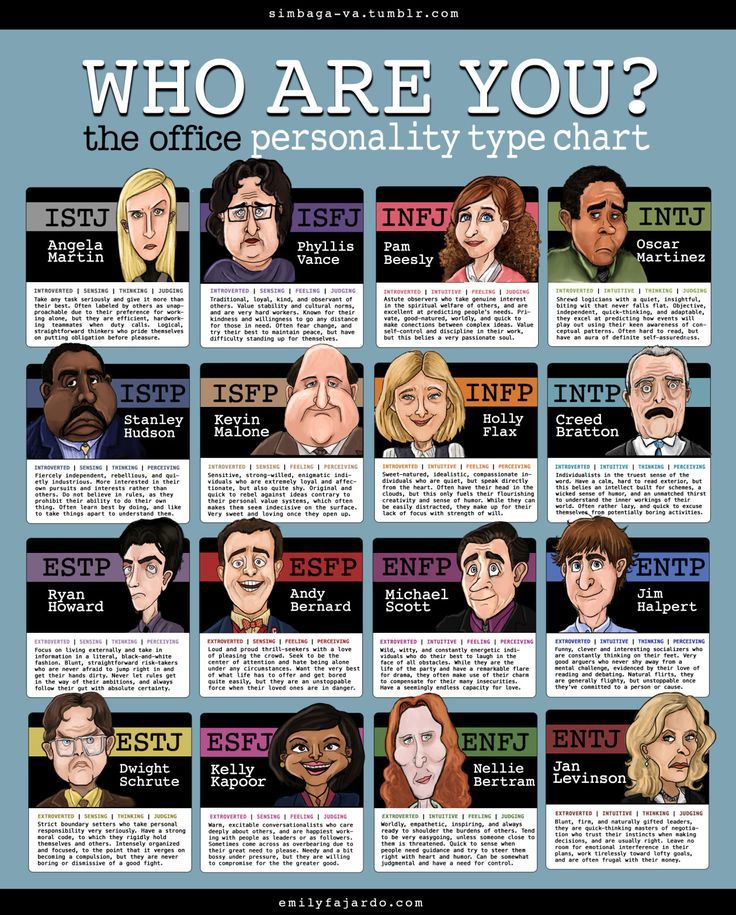
S/N: Sensing or iNtuition
The Sensing/Intuition dimension describes how an individual processes information.
Sensors focus on their five senses and are interested in information they can directly see, hear, feel, and so on. They tend to be hands-on learners and are often described as "practical."
Intuitives focus on a more abstract level of thinking; they are more interested in theories, patterns, and explanations. They are often more concerned with the future than the present and are often described as "creative."
T/F: Thinking or Feeling
The Thinking/Feeling dimension describes how people make decisions.
Thinkers tend to make decisions with their heads; they are interested in finding the most logical, reasonable choice.
Feelers tend to make decisions with their hearts; they are interested in how a decision will affect people, and whether it fits in with their values.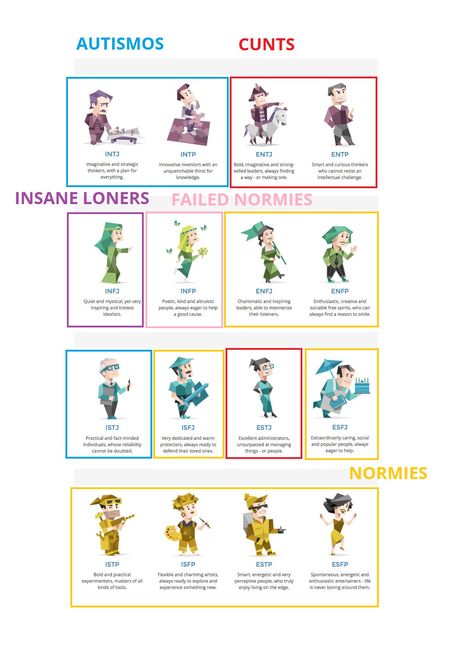
J/P: Judging or Perceiving
The Judging/Perceiving dimension describes how people approach structure in their lives.
Judgers appreciate structure and order; they like things planned, and dislike last-minute changes.
Perceivers appreciate flexibility and spontaneity; they like to leave things open so they can change their minds.
How do I know which personality type I am?
Easy—take our in-depth personality type test!
THE FINE PRINT: Myers-Briggs® and MBTI® are registered trademarks of the MBTI Trust, Inc., which has no affiliation with this site. Truity offers a free personality test based on Myers and Briggs' types, but does not offer the official MBTI® assessment. For more information on the Myers Briggs Type Indicator® assessment, please go here.
The Sixteen Personality Types - High-Level
The Sixteen Personality Types - High-Level ISTJ - The Duty Fulfiller Serious and quiet, interested in security and peaceful living. Click here for a detailed description of ISTJ. ISTP - The MechanicQuiet and reserved, interested in how and why things work. Excellent skills with mechanical things. Risk-takers who they live for the moment. Usually interested in and talented at extreme sports. Uncomplicated in their desires. Loyal to their peers and to their internal value systems, but not overly concerned with respecting laws and rules if they get in the way of getting something done. Detached and analytical, they excel at finding solutions to practical problems. Click here for a detailed description of ISTP. ISFJ - The NurturerQuiet, kind, and conscientious. Can be depended on to follow through. Usually puts the needs of others above their own needs. Stable and practical, they value security and traditions. Well-developed sense of space and function. Rich inner world of observations about people. Extremely perceptive of other's feelings. Interested in serving others. Click here for a detailed description of ISFJ. ISFP - The ArtistQuiet, serious, sensitive and kind. Do not like conflict, and not likely to do things which may generate conflict. Loyal and faithful. Extremely well-developed senses, and aesthetic appreciation for beauty. Not interested in leading or controlling others. Flexible and open-minded. Likely to be original and creative. Enjoy the present moment. Click here for a detailed description of ISFP. |
INFJ - The ProtectorQuietly forceful, original, and sensitive. Tend to stick to things until they are done. Extremely intuitive about people, and concerned for their feelings. Well-developed value systems which they strictly adhere to. Well-respected for their perserverence in doing the right thing. Likely to be individualistic, rather than leading or following. Click here for a detailed description of INFJ. INFP - The Idealist Quiet, reflective, and idealistic. Interested in serving humanity. Well-developed value system, which they strive to live in accordance with. Extremely loyal. Adaptable and laid-back unless a strongly-held value is threatened. Usually talented writers. Mentally quick, and able to see possibilities. Interested in understanding and helping people. Click here for a detailed description of INFP. INTJ - The ScientistIndependent, original, analytical, and determined. Have an exceptional ability to turn theories into solid plans of action. Highly value knowledge, competence, and structure. Driven to derive meaning from their visions. Long-range thinkers. Have very high standards for their performance, and the performance of others. Natural leaders, but will follow if they trust existing leaders. Click here for a detailed description of INTJ. INTP - The Thinker Logical, original, creative thinkers. Can become very excited about theories and ideas. Exceptionally capable and driven to turn theories into clear understandings. Highly value knowledge, competence and logic. Quiet and reserved, hard to get to know well. Individualistic, having no interest in leading or following others. Click here for a detailed description of INTP. |
ESTP - The DoerFriendly, adaptable, action-oriented. "Doers" who are focused on immediate results. Living in the here-and-now, they're risk-takers who live fast-paced lifestyles. Impatient with long explanations. Extremely loyal to their peers, but not usually respectful of laws and rules if they get in the way of getting things done. Great people skills. Click here for a detailed description of ESTP. ESTJ - The Guardian Practical, traditional, and organized. Likely to be athletic. Not interested in theory or abstraction unless they see the practical application. Have clear visions of the way things should be. Loyal and hard-working. Like to be in charge. Exceptionally capable in organizing and running activities. Click here for a detailed description of ESTJ. ESFP - The PerformerPeople-oriented and fun-loving, they make things more fun for others by their enjoyment. Living for the moment, they love new experiences. They dislike theory and impersonal analysis. Interested in serving others. Likely to be the center of attention in social situations. Well-developed common sense and practical ability. Click here for a detailed description of ESFP. ESFJ - The Caregiver Warm-hearted, popular, and conscientious. Tend to put the needs of others over their own needs. Feel strong sense of responsibility and duty. Value traditions and security. Interested in serving others. Need positive reinforcement to feel good about themselves. Well-developed sense of space and function. Click here for a detailed description of ESFJ. |
ENFP - The InspirerEnthusiastic, idealistic, and creative. Able to do almost anything that interests them. Great people skills. Need to live life in accordance with their inner values. Excited by new ideas, but bored with details. Open-minded and flexible, with a broad range of interests and abilities. Click here for a detailed description of ENFP. ENFJ - The Giver Popular and sensitive, with outstanding people skills. Externally focused, with real concern for how others think and feel. Usually dislike being alone. They see everything from the human angle, and dislike impersonal analysis. Very effective at managing people issues, and leading group discussions. Interested in serving others, and probably place the needs of others over their own needs. Click here for a detailed description of ENFJ. ENTP - The VisionaryCreative, resourceful, and intellectually quick. Good at a broad range of things. Enjoy debating issues, and may be into "one-up-manship". They get very excited about new ideas and projects, but may neglect the more routine aspects of life. Generally outspoken and assertive. They enjoy people and are stimulating company. Excellent ability to understand concepts and apply logic to find solutions. Click here for a detailed description of ENTP. ENTJ - The Executive Assertive and outspoken - they are driven to lead. Excellent ability to understand difficult organizational problems and create solid solutions. Intelligent and well-informed, they usually excel at public speaking. They value knowledge and competence, and usually have little patience with inefficiency or disorganization. Click here for a detailed description of ENTJ. |
Contact us
Copyright 1998-2023 BSM Consulting Terms of Use and Privacy Policy
Personality types | 16Personalities
Analysts
Strategist
INTJ-A / INTJ-T
Imaginative, strategic thinkers with a plan for all occasions.
Scientist
INTP-A / INTP-T
Creative inventors, with a strong belief in the power of knowledge.
Commander
ENTJ-A / ENTJ-T
Brave, resourceful and strong-willed leaders who always find a way - or make a way.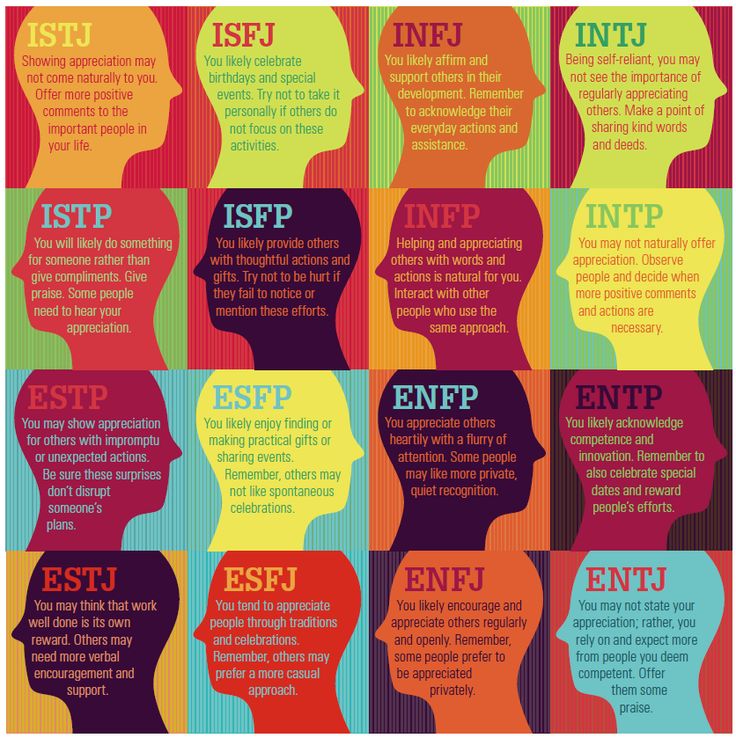
Debater
ENTP-A / ENTP-T
Smart and curious thinkers who never turn down an intellectual challenge.
Diplomats
Activist
INFJ-A / INFJ-T
Quiet and mystical, but inspiring and relentless idealists.
Broker
INFP-A / INFP-T
Poetic, kind and altruistic personalities, always ready to stand up for a good cause.
Trainer
ENFJ-A / ENFJ-T
Charismatic and inspiring leaders who captivate their listeners.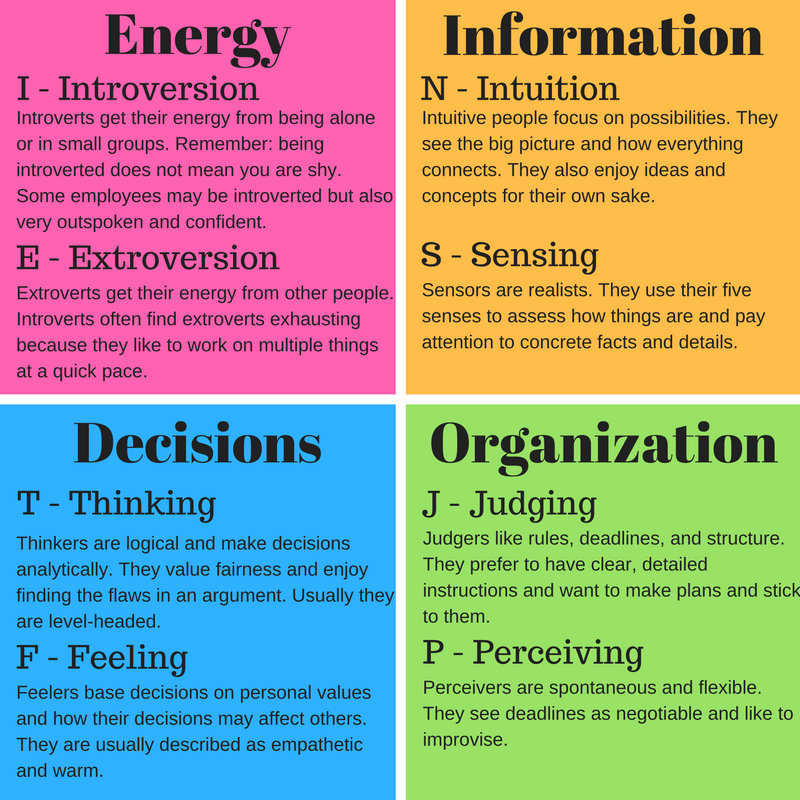
Wrestler
ENFP-A / ENFP-T
Enthusiasts, creative and sociable free minds who always find a reason to smile.
Guardians
Administrator
ISTJ-A / ISTJ-T
Practical and factual people whose reliability is unshakable.
Protector
ISFJ-A / ISFJ-T
Very responsible and kind protectors, always ready to protect their loved ones.
Manager
ESTJ-A / ESTJ-T
Excellent administrators, unsurpassed specialists in process and people management.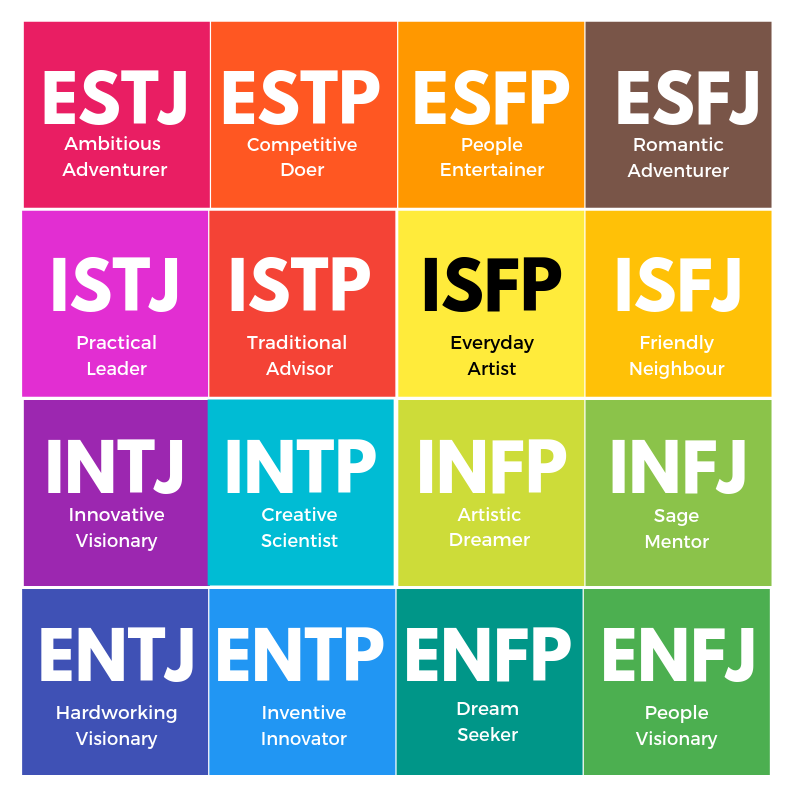
Consul
ESFJ-A / ESFJ-T
Extremely caring, sociable and popular people, always ready to help.
Seekers
Virtuoso
ISTP-A / ISTP-T
Brave and practical experimenters, masters of all kinds of techniques and tools.
Artist
ISFP-A / ISFP-T
Flexible and charming artists, always ready to explore and experience something new.
Dealer
ESTP-A / ESTP-T
Smart, energetic and very receptive people who truly enjoy risk.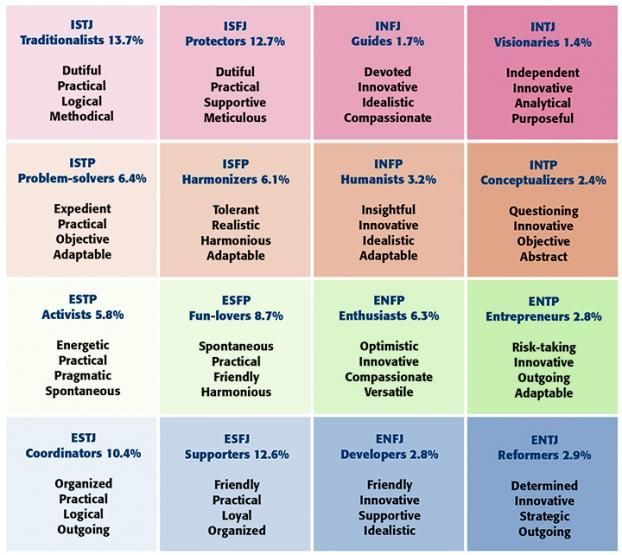
Entertainer
ESFP-A / ESFP-T
Spontaneous, energetic and tireless merry fellows - where they are, it's never boring.
MBTI Personality Profiles - AMI Business School
MBTI Personality Profiles
A globally recognized method for identifying types of leaders, built on the basis of Jung's classification of personality types.
The Myers-Briggs Personality Type Index divides people into 16 personality types. The creators of the tool believe that a person’s personality type is influenced by his preferences, namely, then:
- Where do we focus our attention and where do we get energy from
- What way of perceiving information and what kind of information do we trust
- How we make decisions
- How we orient ourselves in relation to the outside world
7
regions
applications
12
languages
reports
70
countries use
results
diagnostics
2
million
users per year
150
companies and business schools
use on
regular basis
Pass diagnostics
How do we use the MBTI methodology?
Diagnostics for the correct selection, adaptation and development of personnel
Personal coaching for employee behavior correction and leadership style development
Interactive workshops to understand behavior and improve communication levels
What results have companies achieved using the MBTI?
| 15% | • reduction of conflicts, increase of employees' tolerance for each other | |
| height | | • increase in the communicative competence of the team |
| EBITDA | • reduce the time and improve the quality and efficiency of meetings |
The tool is widely used by over 150 international companies and business schools in over 70 countries and has been translated into over 12 languages.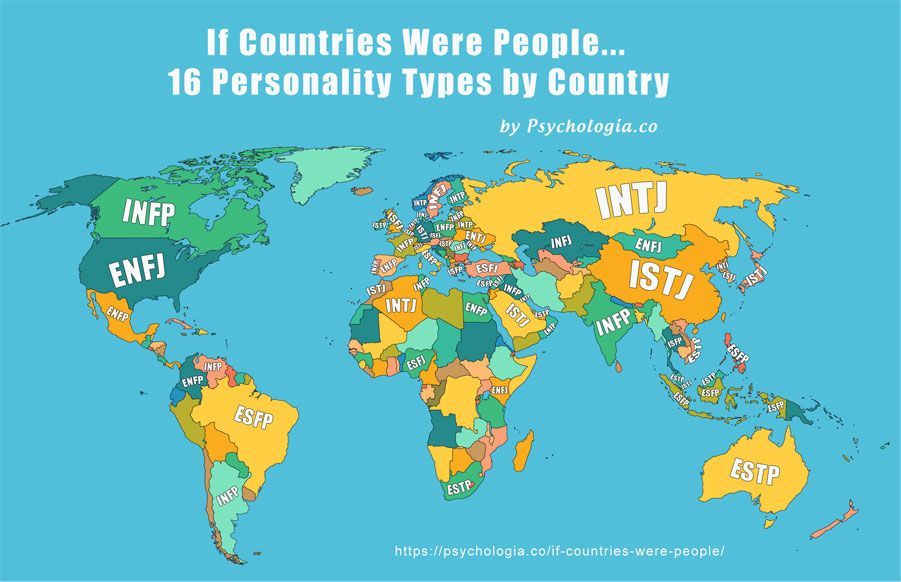 In the USA it is used for career guidance, in particular by the US Armed Forces and companies such as IBM, AT&T, Mars and others. More than 2 million people all over the world are tested annually for professional purposes.
In the USA it is used for career guidance, in particular by the US Armed Forces and companies such as IBM, AT&T, Mars and others. More than 2 million people all over the world are tested annually for professional purposes.
Why use the MBTI tool?
- See in what context and for what type of tasks and situations these types appear
- Increase the predictability of human behavior in different circumstances
- Establish resilience and coping mechanisms
- Understand the mechanisms of interaction and sources of conflict between people.
The MBTI defines a person's preferences through four pairs of opposites called dichotomies. Four scales are measured:
- source of energy: extraversion/introversion
- perception of information: intuitive/sensory
- decision principle: reason/feelings
- life organization: process orientation/result orientation
For each person, only one way of behavior within each category is natural, which is easier and more natural for him to use than the other.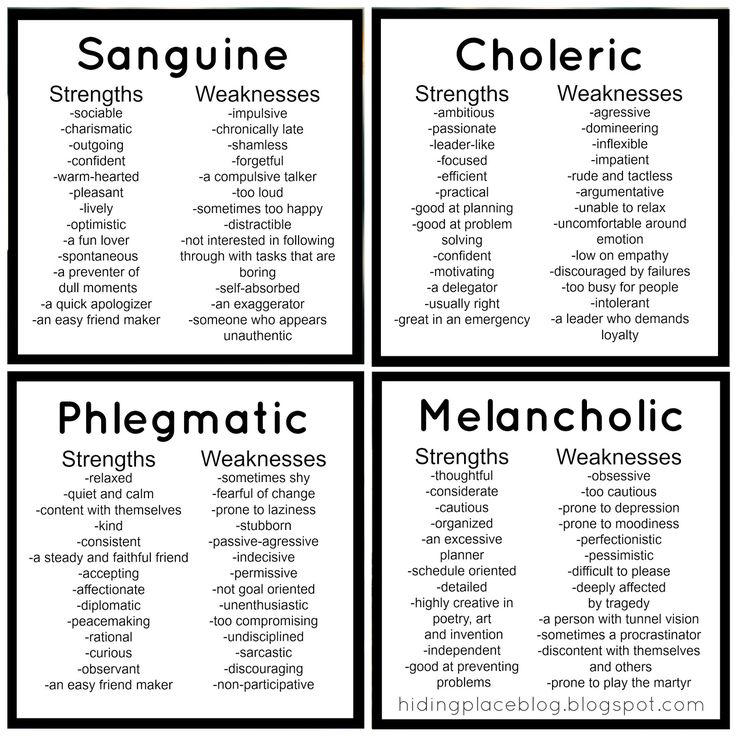 Therefore, we are talking about the "preference" of one function over another. The combination of "preferences" determines the psychological type.
Therefore, we are talking about the "preference" of one function over another. The combination of "preferences" determines the psychological type.
First preference shows what a person focuses his attention on and where he gets energy from. From within yourself (Introverted, Introverted) or from external sources (Extroverted, Extraverted).
Second preference - a way of obtaining information, determines how a person perceives and assimilates information. Focuses on present realities, hard facts and experiences (Sensing) or relies on one's intuition, focuses on future possibilities and big pictures (Intuitive).
Third preference shows how a person makes decisions. Does he tend to make decisions based on logic and objective judgments (Thinking), or on the basis of a personal, subjective system of values, personal priorities and relationships (Feeling).
The fourth preference determines how a person interacts with the outside world on a daily basis.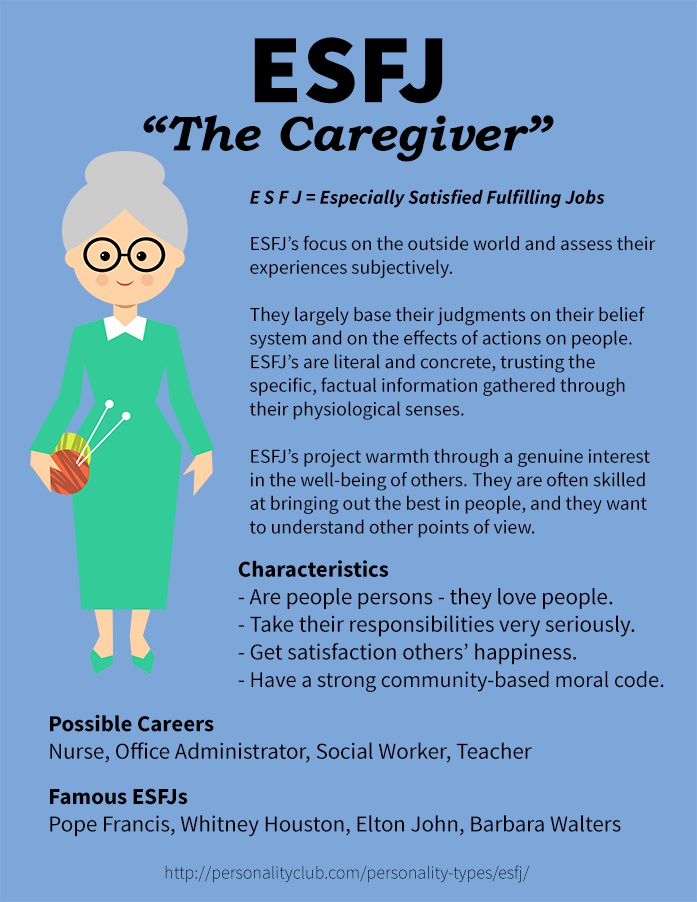
 Extremely thorough, responsible, and dependable. Well-developed powers of concentration. Usually interested in supporting and promoting traditions and establishments. Well-organized and hard working, they work steadily towards identified goals. They can usually accomplish any task once they have set their mind to it.
Extremely thorough, responsible, and dependable. Well-developed powers of concentration. Usually interested in supporting and promoting traditions and establishments. Well-organized and hard working, they work steadily towards identified goals. They can usually accomplish any task once they have set their mind to it. 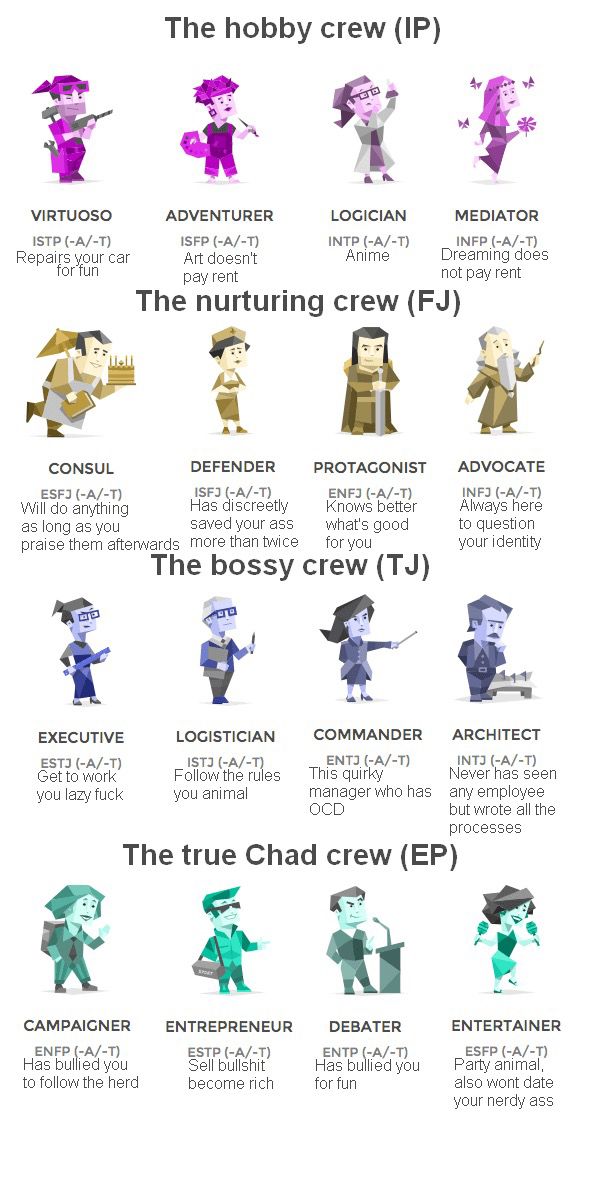
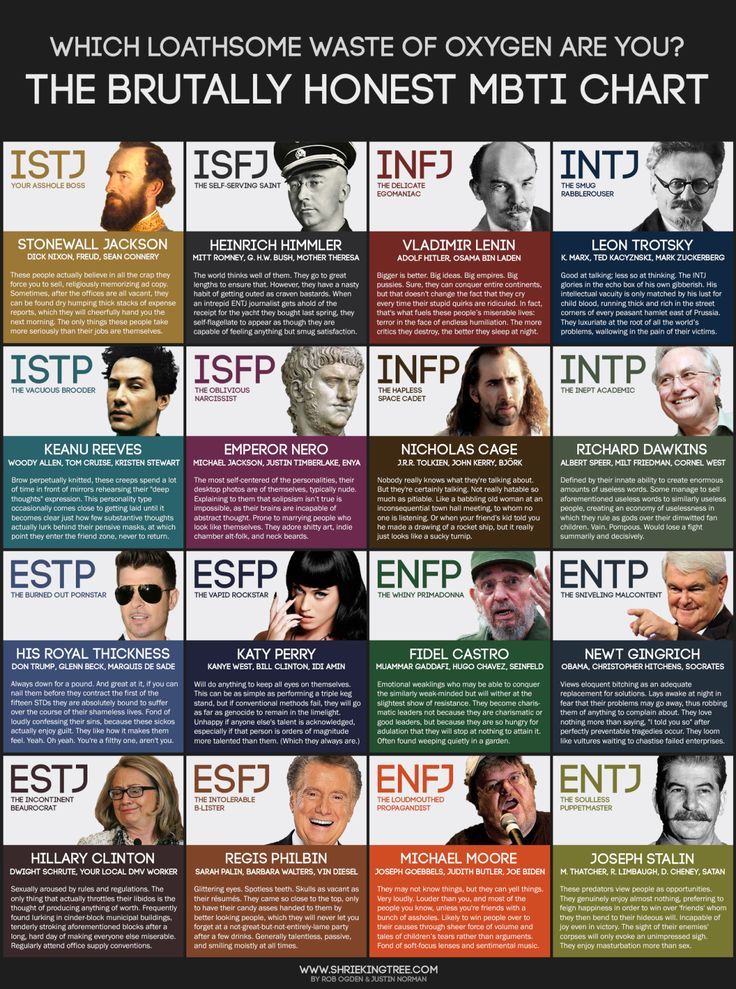
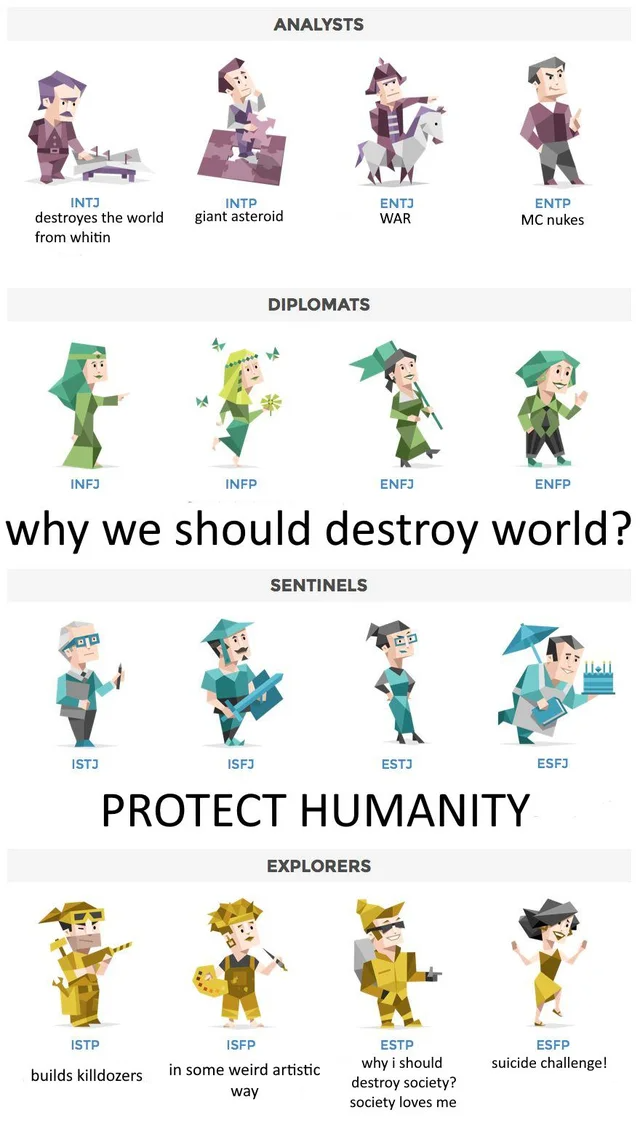
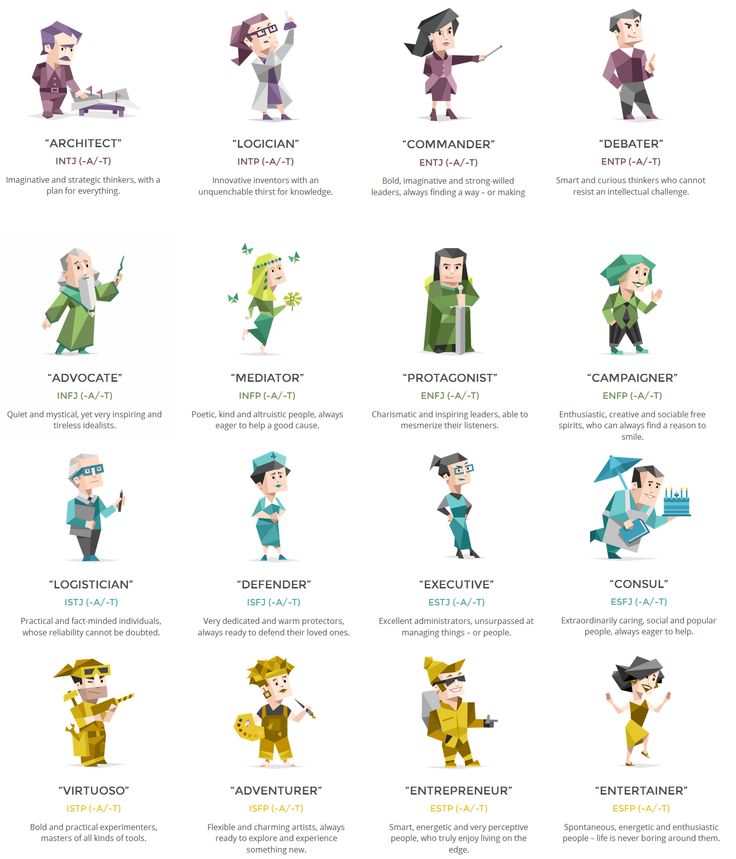
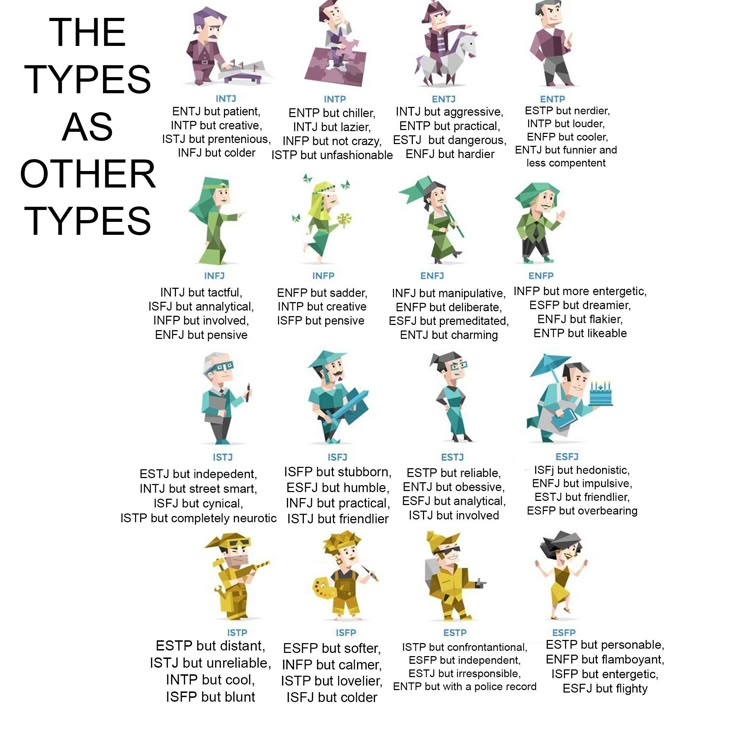 "Good citizens" who value security and peaceful living.
"Good citizens" who value security and peaceful living. 